Charles Spencer: ‘Our podcast is the antidote to the Today programme’
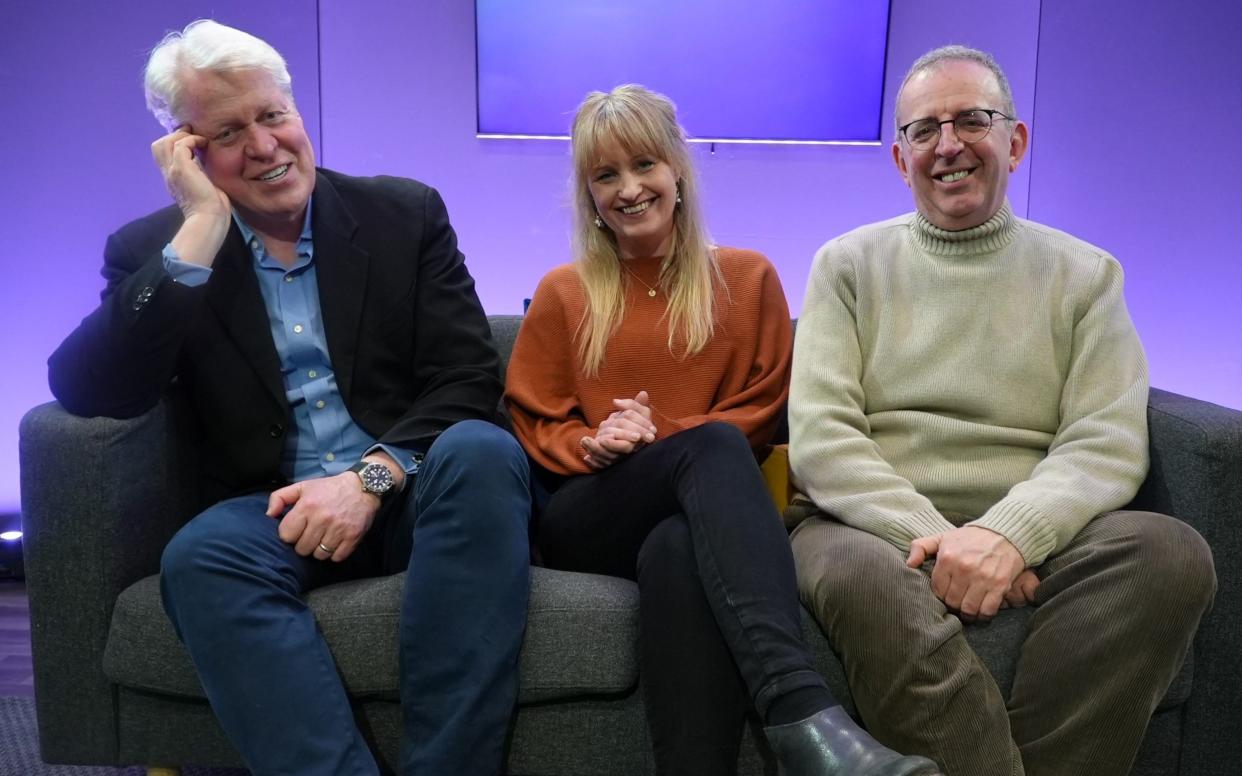
Did you know that Mao Zedong once declared war on sparrows? Or that Russia has 11 time zones, but China just one? Or perhaps you’d already heard how Kaiser Wilhelm’s pet dachshunds almost started the First World War?
There’s glory in a good factoid. They elicit a joy which far outstrips their usefulness or relevance. That pleasure is central to The Rabbit Hole Detectives, a new weekly podcast. Presented by Rev Richard Coles, Charles Spencer and Dr Cat Jarman, its premise is that each week the trio set each other a topic to research – fertiliser, say, or baptismal fonts – then they have 15 minutes each to present their discoveries to the others. Whoever has the most interesting finding wins.
“It works incredibly well,” Spencer tells me over tea in Soho House. “Podcasts aren’t really my thing. But the dynamic of having three people who obviously get on is a contrast to the grimness of the world. I find if I listen to Radio 4 in the morning, it’s so confrontational that I’m gloomy for the rest of the day. We’re the antidote to the Today programme.”
On the face of it, they make for an unlikely trio. Coles, whose buttery urbanity you could spread on toast, will be a familiar presence from his broadcasting on the BBC. Spencer, meanwhile, cuts an unmistakable dash. As brother to Princess Diana, uncle to the future king and the ninth Earl Spencer – scion of one of the grandest families in England – it’d be hard not to.
Jarman is the unexpected missing piece. A writer and bioarchaeologist, who specialises in the Vikings, she met Spencer while filming a Channel 4 documentary about his family home, Ancient Secrets of Althorp. Coles is an old friend of Spencer’s and a regular visitor. As she tells it, one night they were discussing “Anglo Saxon footwear” and realised that it might be fun to listen in to their freewheeling conversation. On the show, she brings a jolt of academic rigour, marshalling her co-presenters’ more outlandish segues.
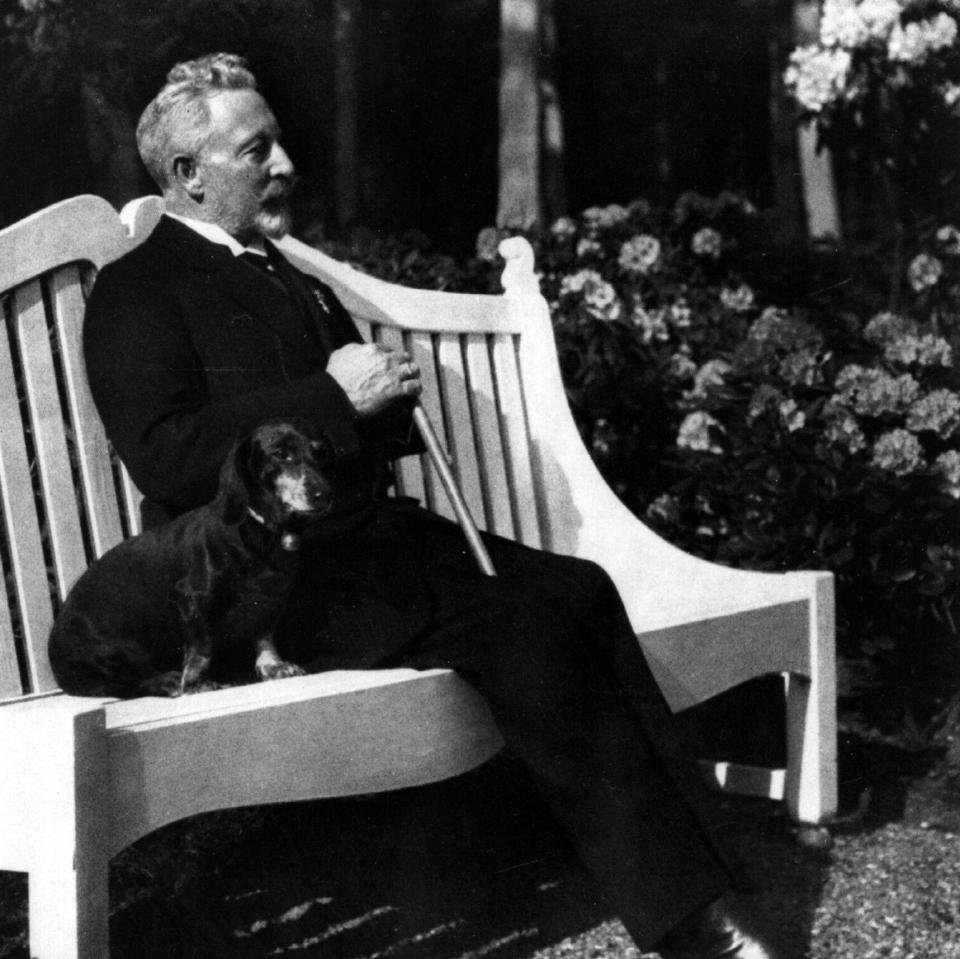
“Cat and Charles are proper historians,” says Coles, “whereas I skate on the meniscus of culture … they’ve got so much more to lose! Cat’s also Norwegian and that acts as an unconscious brake to Charles and I’s tendency to go off on one. We’ll be drawling away and she’ll inject a note of pure Viking.”
Four episodes have been released so far. Reviews have been glowing. But there’s one element which has commanded attention above all else – it’s poshness. The Telegraph’s Charlotte Runcie called it “unashamedly posh”. Are they bothered by the implication they’ve made a posh pod?
“Am I posh?” wonders Spencer, a man whose Grade I-listed ancestral seat is more than 250 years older than America. “I don’t consider myself posh, but when I ask people if I am, they fall down laughing …”
“He seemed quite shocked [by the review],” laughs Cat. “We said to the producer we should give him the history of hip-hop to research next.”
“I don’t think we’d get through a diversity audit,” adds Coles. “But I’m a protected characteristic, Cat is an immigrant and before he went grey, Charles was ginger so maybe we would pass.”
In terms of research, the presenters were given some preliminary information ahead of each episode. But after that, any further discoveries were a matter of pride – and resisting the lure of Wikipedia.
Episodes skip between subjects with mayfly glee. Yet its sprightliness disguises a serious concern about a lack of historical literacy in Britain.
Jarman argues: “I’m currently doing the British citizenship test and there’s a hilarious section about what you need to know as an average citizen. I actually failed the Vikings bit – because it was wrong. It [the test] asks you: ‘who defeated the Vikings?’ But no one really did … And there was another question which asked, which of these four words comes from the Viking language? Well, for a start, there’s no such thing. And there were actually two words in that list which had Scandinavian roots. There’s this problem of incorrect knowledge not being challenged and being passed on to the next generation.”
Addressing these gaps in a light-hearted way is more important than wading into the choppy waters of historical culture wars, believes Spencer. “We’re not going to shy away from difficult questions. But people must enjoy it. I think there’s a huge unmet appetite for making something interesting, engaging and positive.”
Coles agrees: “We’re on the scent of different stories anyway. All three of us are curious about the oblique, not the mainstream.”
That said, Coles and Spencer differ on the topic of “decolonisation”. Coles argues: “In a way, I don’t think it can go far enough. I was brought up in an English public school in the 1970s and told a very particular version of history. I’m a 60-year-old white male, relatively privileged, I suppose. And I carry with me the assumptions and prejudices that come with that. I’m up for being challenged. I think that’s good.”
I ask Spencer whether he would consider putting up explanatory plaques at Althorp, as the National Trust has done at some of its properties. “No, I don’t think so. We didn’t have a terribly dark past, and I say that with some astonishment,” he explains. “The third Earl Spencer was one of the driving forces behind abolition, for instance. Not that I take any credit for that. It’s important to remember these people had the same devastating disappointments, loves and triumphs as we do today.”
But he acknowledges a generational change. “When I was growing up, I was taught certain things as absolute truths. I was probably the last generation to cast a non-critical eye on the British Empire. So I’ve had to learn a lot in middle age to get my head around that. But total honesty about the past is the only interesting way of looking at it.”
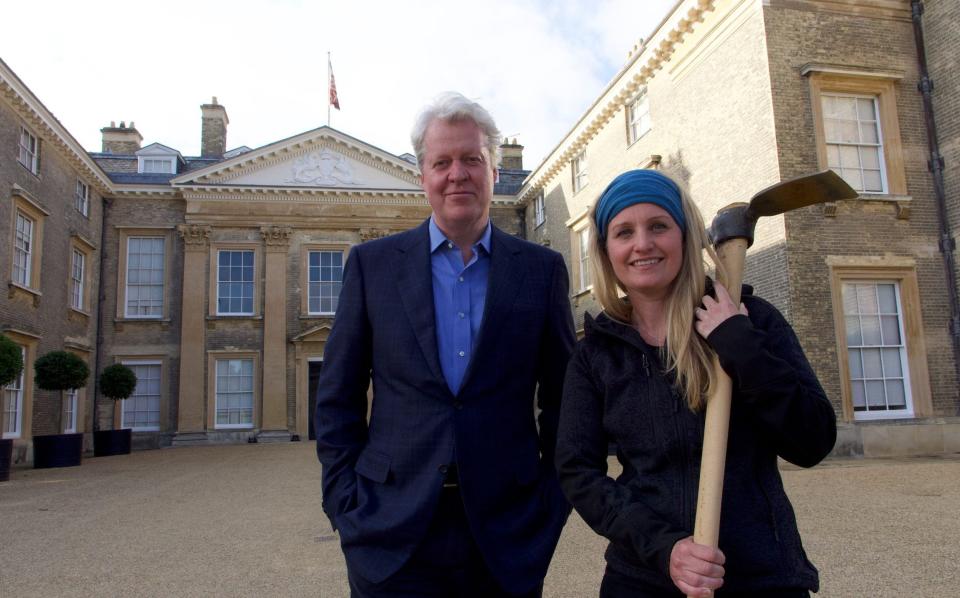
The Rabbit Hole Detectives is gently personal. In the second episode, for instance, Coles talks wryly about the funeral of his husband, David, whose coffin had to be moved to make way for another late-minute addition. He ended up in the porch, with the coffee cups.
“As a vicar, my job was to give public expression to private feeling,” he explains. “I want to capture and preserve as much of [David] as I can. When someone is your life, you want to hang on to the fragments of them for as long as possible. But I’m three years in now, and I’ve started seeing someone else. So I’m standing up and facing forward. You don’t get over it, obviously – but you get used to it.”
For Spencer, the podcast is a chance to shrug off his somewhat brittle public image. “If you read about me in the tabloids, you’d probably see me as this uptight, fierce figure whereas in this podcast I can just be myself and slightly ridiculous.”
He compares the freedom he’s found to the liberation of being a correspondent for the American news channel NBC in his 20s. Then, he was just another thrusting reporter, rather than brother to the most famous woman in the world.
Coles agrees it shows a different side of his friend: “Charles the public figure is actually a very narrow view of him. Most people want to talk about his sister or his nephew – and of course, I remember the tragedy of his eulogy [at Princess Diana’s funeral]. But it’s a bit like meeting Elton John. For the first five minutes, all you can think about is Rocket Man and after that you’re just people talking.”
In fact, liberty comes up often in our conversation. All three suggest podcasts represent a more buccaneering side of broadcasting, an escape from institutional oversight. Do they think their show would have been commissioned by the BBC?

Spencer answers quickly: “Probably not. Because there is such a drive for diversity. They would have been much more prescriptive about content.”
“That’s absolutely true,” says Jarman. “No one is telling us what to talk about. And the beauty of podcasts is the audience will find you if there’s an appetite.”
We’re talking on the day the first rumblings of the Gary Lineker row break. Coles, who is a weekly presenter on Radio 4’s Saturday Live, says: “I’ve learnt from the job to keep my party political opinions separate from my public commitments. However, [Lineker] has a right to express views which conflict with government policy. I’d hate to think there wasn’t space for a voice like his in our public broadcaster.”
Still, he compares the BBC’s fumbling of the affair to the Church of England’s strained equivocation on gay marriage – the last straw, he admits, in his decision to step back from active ministry last year.
“As with the BBC, you start with very low expectations. But I found [the gay marriage decision] very burdensome. I don’t miss having to put a brave face on it. I’ve been involved with two national institutions for most of my working life, and as you get older it gets harder to bite your tongue. I’m not done with the Church, and I hope the Church isn’t done with me. But at the moment, I’m demob happy.”
Of course, The Rabbit Hole Detectives will keep him and his co-presenters busy. A further eight episodes are being recorded, due out this summer.
The past, after all, has no shortage of obscure byways to vanish down. As Jarman puts it: “History is never ending. You could just go on forever.”
New episodes of The Rabbit Hole Detectives are every Wednesday, via Apple, Spotify and other platforms
Five podcasts for history buffs
The Rest is History
Tom Holland and Dominic Sandbrook’s grand statement is to “interrogate the past to de-tangle the present”. However, you can ignore that - this is two charming, erudite historians delving deep, with tangible relish, into every nook and cranny of history.
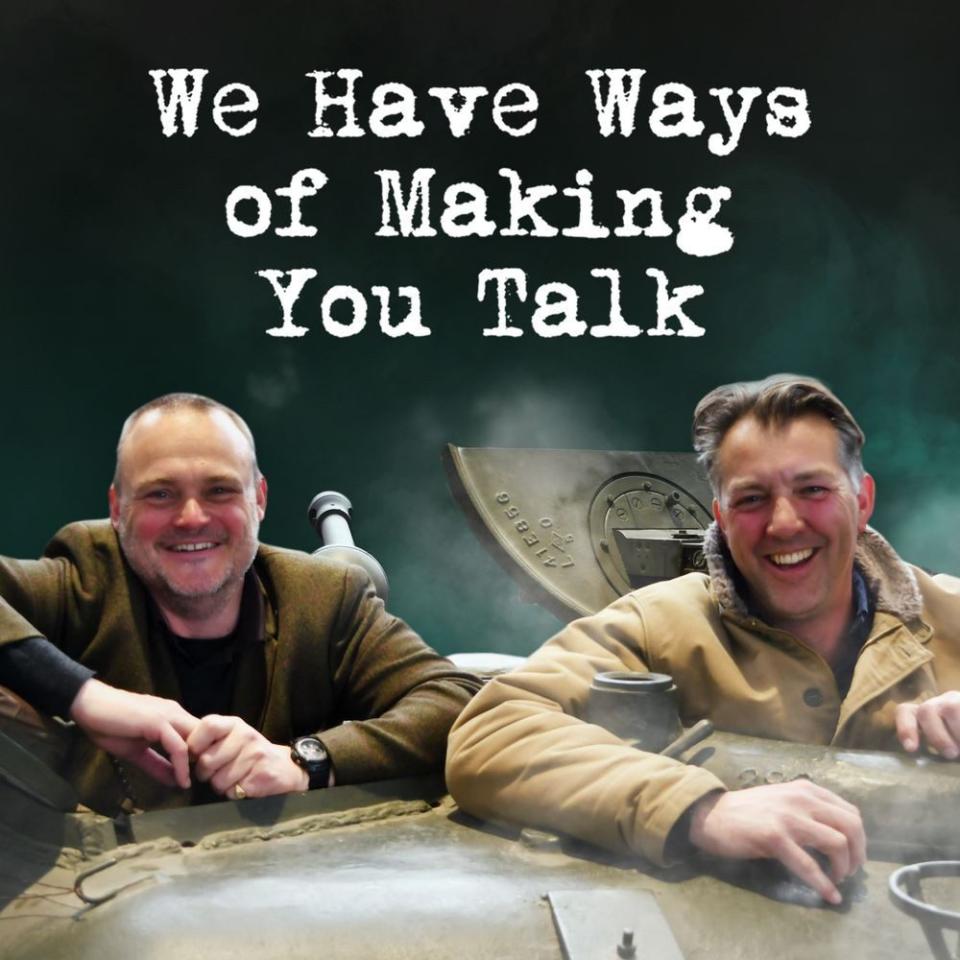
We Have Ways of Making You Talk
For Second World War buffs, this is irresistible. Comedian Al Murray and historian James Holland take a microscope to the war, zoning in on everything from El Alamein and the Home Guard to Spitfires and Stalingrad.
Empire
Anita Anand and William Dalrymple’s excellent series about the rise and fall of empires has, so far, covered the British in India and the Ottomans. Many podcasts claim to illuminate “how we live today” - this one actually does just that.
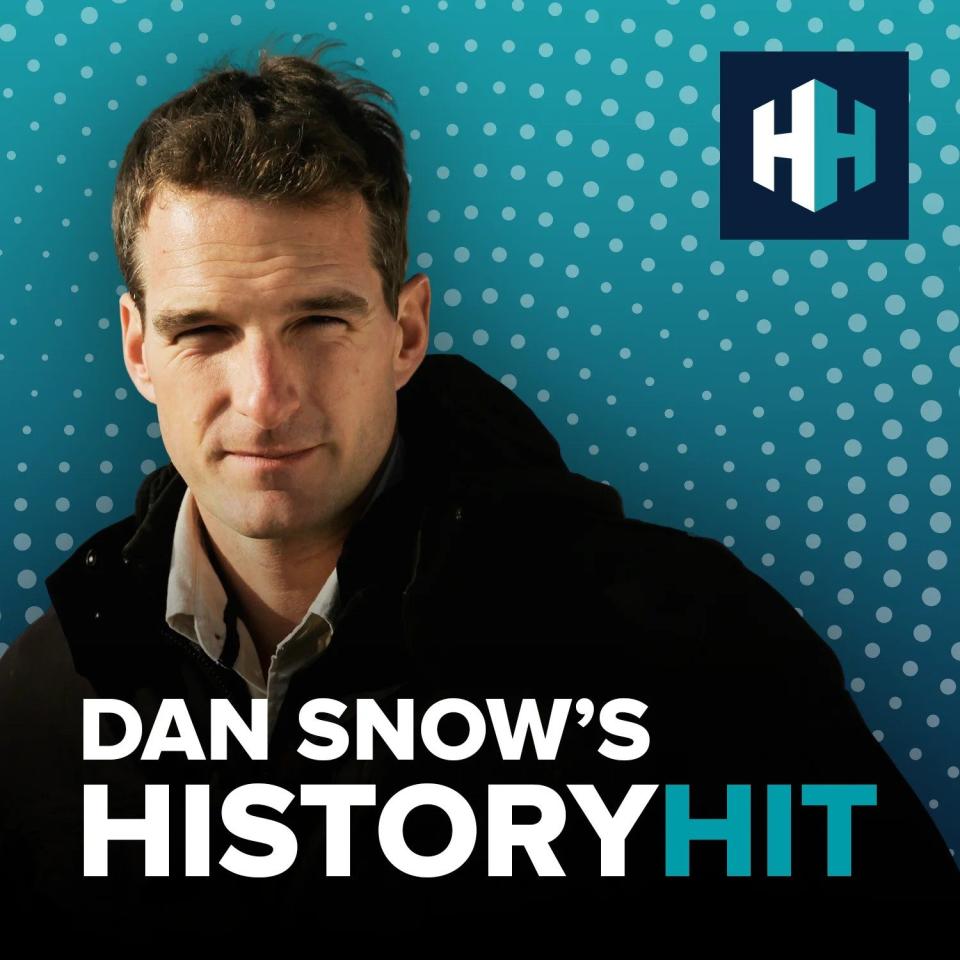
Dan Snow’s History Hit
Skipping from subject to subject like a stone across the water, Snow’s digestible daily “hit” takes on prehistoric man one day and then The Muppets the next. One for you if you’d like to know a little something about everything.
Dan Carlin’s Hardcore History
If the Brit podcasts are too self-effacing, good-humoured and short for your liking, try Carlin. The American applies his “Martian” brain to various subjects and delivers epic sermons/lessons (up to six hours!). If you like your history brawny, this is the one.


